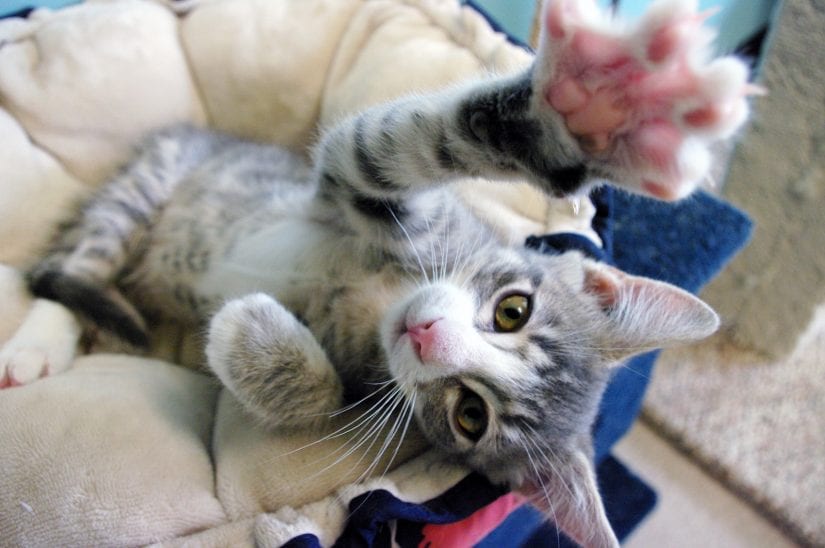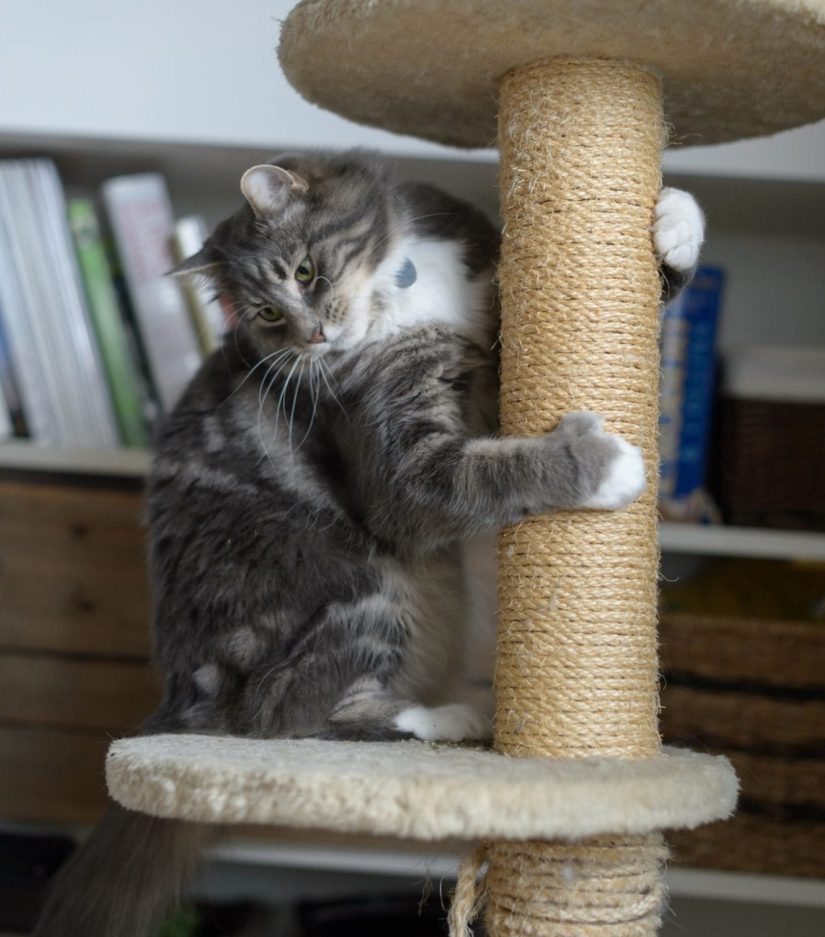The BC SPCA is calling on the College of Veterinarians of British Columbia (CVBC) to enact a ban on feline declawing, a practice that the non-profit animal welfare society says causes unnecessary pain and suffering for cats.
“For nearly two decades, the BC SPCA has been on record opposing procedures such as declawing, tail docking, ear cropping and devocalization that impact an animal’s ability to experience good welfare and to express natural behaviours,” says Dr. Emilia Gordon, senior manager of animal health for the BC SPCA.
“Declawing a cat does not just remove the nails, it removes bones of the toes — comparable to amputating all of a human’s fingers at the last knuckle.”

Dr. Gordon says studies show that declawed cats are at higher risk for biting and aggression, are more likely to have trouble using the litterbox, and have a significantly increased chance of back pain.
Concerningly, a recent study showed that 63 per cent of declawed cats experienced abnormal bone growth long-term where the toes had been cut, a condition which can cause severe pain.
“There are many short- and long-term complications of declawing,” she says, noting that the BC SPCA advises all pet guardians to look for alternative solutions to cosmetic alterations.
“Cats need their nails to engage in normal behaviour and movement, including stretching and climbing, and there are many humane solutions available to help fulfill a cat’s instinctive need to scratch so that it does not become a problem in the home.”

Dr. Gordon says many other veterinary associations have spoken out against feline declawing.
“In 2017, the Canadian Veterinary Medical Association released a position statement opposing feline declawing, stating that it is an “ethically unacceptable” practice,” she says.
“The American Association of Feline Practitioners also revised their position in 2017 to “strongly oppose” the procedure.”
Recently, the Nova Scotia Veterinary Medical Association voted to ban feline declawing via their Code of Ethics and declawing is also prohibited in Australia, New Zealand, Israel, Brazil, the United Kingdom, many parts of Europe and some cities in California.
Dr. Gordon says she believes veterinarians in this province care strongly about animal welfare and would welcome an opportunity to lead the way on this issue.
“B.C. veterinarians have collectively spoken in a strong voice on similar animal welfare issues, with more than 60 per cent of veterinarians voting (91.5 per cent in favour) of a ban on canine tail docking in 2016. A decision by the CVBC to make feline declawing an unethical practice of veterinary medicine would be a significant step forward in the humane treatment of animals in B.C.”
If feline declawing were no longer considered an acceptable practice by the CVBC, any individual performing the procedure and causing distress to an animal could face animal cruelty charges under the Prevention of Cruelty to Animals Act.
